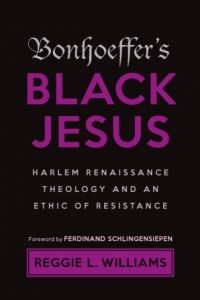 Summary: An excellent book about the missing part of Bonhoeffer’s story within many of his biographies.
Summary: An excellent book about the missing part of Bonhoeffer’s story within many of his biographies.
Essentially, for the past month, I have not written anything about my reading. Starting almost a month ago, I went on a silent Ignatian retreat as part of a prerequisite for starting a graduate school program to become a spiritual director. Between that retreat, work, kids being home for summer, a quick vacation, and everything else, I have not written anything. I write more for myself than anyone who stops by this blog, but to have that record, I have to write. Weeks, months, or years later, I want to know what I thought when I read a book, not just what I remember at any particular time.
I went on the retreat with Bonhoeffer’s Black Jesus and Willie James Jenning’s commentary on Acts, finishing both the during the five days of my retreat. Not every Ignatian retreat is like mine, but I was focusing on hearing from God, and this book, and Jenning’s commentary on Acts, were what I think God wanted to say to me.
I know almost nothing about the Harlem Renaissance. I should, but that is a portion of my education that is lacking. The third chapter on the imagery of Jesus, especially a Black Jesus, during the Harlem Renaissance was so very helpful. I need to read more about the Harlem Renaissance not just because it is an area that I should know about but also because my grandmother actually lived in Harlem during that era.
She came to the US from Finland as a 12-year-old in 1926. She lived in Harlem until, I think, the summer of 1931. So her time there and Bonhoeffer’s time there overlapped. I wish I had been aware enough to ask her questions about it when she was alive.
The overly simplified argument of Bonhoeffer’s Black Jesus is that before Bonhoeffer’s confrontation with the Black church, especially the Abyssinian Baptist Church and the pastors and others of the church, Bonhoeffer did not understand the role of the church in Christianity or understand Christianity’s concern for the poor and marginalized. Bonhoeffer even says that before that point, he did not believe he was a Christian. Note that he would have been saying this after having written two theology dissertations and having been the associate pastor of a church for a year.
Williams suggests that it was the inspiration of Bonhoeffer’s contact with the Black Church in America that allowed his opposition to Hitler and Nazi ideology more generally to not just be theological but focused particularly on the anti-semitism in ways that almost no one else in Germany Confessing Church movement was. The Confessing Church opposed the political takeover of the church. It opposed the way that the Nazi party was using the language and actions of antisemitism, but most Christians in the Confessing Church movement were still themselves antisemitic and/or supersessionist.
I have 26 highlights on my goodread page if you want a sense of Bonhoeffer’s Black Jesus. It is not cheap. I would recommend almost everyone try to get it at a library and use an interlibrary loan. Both Kindle and paper versions are around $40 a copy.
Bonhoeffer’s Black Jesus: Harlem Renaissance Theology and an Ethic of Resistance by Reggie Williams Purchase Links: Paperback, Kindle Edition